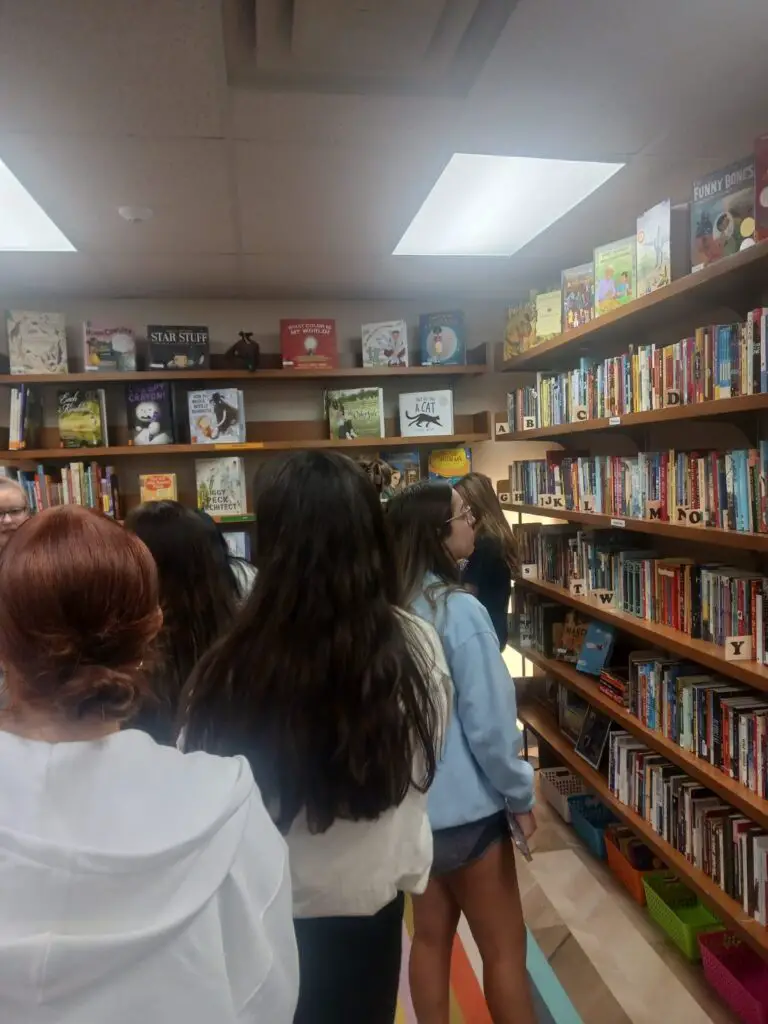- Access to Resources: School libraries provide access to a diverse range of books, periodicals, digital resources, and educational materials. This variety supports different learning styles and interests, helping students to engage with and understand the curriculum more effectively.
- Promoting Literacy: Libraries foster a love for reading and help develop literacy skills. By offering a wide selection of reading materials and organizing reading programs, libraries encourage students to read for pleasure and information, which enhances their comprehension and writing abilities.
- Supporting Research Skills: Libraries teach students how to conduct research and evaluate sources critically. This includes using catalogs, databases, and online resources, which are essential skills for academic success and lifelong learning.
- Encouraging Critical Thinking: Exposure to diverse viewpoints and resources helps students develop critical thinking and problem-solving skills. Libraries often offer materials that present different perspectives, fostering discussion and deeper understanding.
- Providing a Safe Space: Libraries serve as a quiet, safe space for students to study, think, and work on projects. This environment supports concentration and creativity, away from the often noisy and distracting classroom setting.
- Supporting Curriculum and Instruction: Librarians often collaborate with teachers to develop and implement curriculum-related projects. They help integrate library resources into classroom instruction, making learning more dynamic and interactive.
- Fostering Digital Literacy: With the increasing reliance on digital tools, school libraries are crucial for teaching students how to navigate digital information, use technology responsibly, and understand the implications of online content.
- Encouraging Lifelong Learning: Libraries instill habits of lifelong learning and curiosity. By introducing students to a wide range of subjects and fostering an environment of exploration, libraries help students become independent, enthusiastic learners.
- Community Building: School libraries often host events, book clubs, and other activities that build a sense of community among students, teachers, and parents. These events can help strengthen the school culture and encourage collaborative learning.
Overall, school libraries are integral to creating a rich educational environment that supports academic achievement, personal growth, and lifelong learning.
Libraries benefit communities in numerous ways, extending far beyond their traditional roles as centers for reading and research. Here are some key benefits:

- Access to Information and Resources: Libraries provide free access to a wide range of information resources, including books, newspapers, magazines, and digital content. This is especially important for individuals who may not have access to these resources otherwise, bridging gaps in information access.
- Educational Support: Libraries offer educational programs and services for all ages, from early literacy programs for children to adult education classes. These programs support lifelong learning and help individuals develop new skills or improve existing ones.
- Community Hub: Libraries often serve as central gathering places for community events, meetings, and social activities. They host workshops, lectures, cultural events, and support local organizations, fostering a sense of community and civic engagement.
- Digital Access and Literacy: Many libraries provide free access to computers, the internet, and digital literacy training. This is crucial for individuals who may not have internet access at home, helping them to search for jobs, apply for services, and stay connected.
- Support for Economic Development: Libraries support local economic development by offering resources for job seekers, entrepreneurs, and small businesses. They may provide business databases, resume workshops, and entrepreneurial guidance.
- Cultural Enrichment: Libraries offer access to diverse cultural and artistic resources, including local history archives, art exhibits, and musical performances. They play a role in preserving and celebrating local culture and history.
- Youth Development: Libraries provide a safe, nurturing environment for children and teens. Through storytimes, reading programs, and educational activities, they support early literacy and youth development.
- Social Inclusion: Libraries are inclusive spaces that welcome people from all walks of life. They offer services in multiple languages and provide resources and support for marginalized and underserved communities.
- Health and Wellbeing: Libraries often offer resources and programs related to health and wellness, including informational materials on mental health, physical health, and access to social services.
- Environmental Sustainability: Many libraries promote sustainability through green building practices, energy-efficient operations, and programs that educate the community about environmental issues.
In essence, libraries are vital community assets that enhance quality of life, support personal and professional growth, and foster community cohesion. They provide invaluable services that contribute to the overall well-being and development of individuals and the community as a whole.
libraries are essential in higher education institutions for several reasons:

- Academic Support: Libraries provide access to a vast array of academic resources, including textbooks, research journals, databases, and specialized publications. This access supports students in conducting research, writing papers, and staying current with developments in their fields of study.
- Research Facilitation: Libraries are crucial for facilitating research activities. They offer access to academic databases, archives, and other resources that are critical for conducting thorough and credible research. Librarians often assist with research methods, citation management, and data organization.
- Information Literacy: Libraries teach students essential skills in information literacy, including how to locate, evaluate, and use information effectively. These skills are vital for academic success and are transferable to professional and personal contexts.
- Study and Collaboration Spaces: Libraries provide quiet study areas, group study rooms, and collaborative workspaces. These environments are conducive to focused study, group projects, and academic discussions, enhancing the learning experience.
- Support for Diverse Learning Needs: Libraries offer a range of resources and services to support diverse learning needs, including accommodations for students with disabilities, access to multimedia materials, and support for different learning styles.
- Access to Technology: Many libraries are equipped with technology such as computers, printers, and specialized software. This access is crucial for students who may not have these resources readily available elsewhere.
- Professional Development: Libraries often provide resources and programs for professional development, including workshops, seminars, and access to industry-specific literature. These resources help students prepare for careers in their chosen fields.
- Preservation of Knowledge: Libraries play a role in preserving academic knowledge and historical records. They maintain archives and special collections that are valuable for research and historical understanding.
- Intellectual Community: Libraries foster an intellectual community by hosting lectures, seminars, and cultural events. These activities contribute to the academic and cultural life of the institution and provide opportunities for students and faculty to engage with experts and peers.
- Lifelong Learning: Libraries promote the value of lifelong learning. By providing access to a wide range of resources and learning opportunities, they encourage students to continue learning beyond their formal education.
In summary, libraries are indispensable in higher education institutions. They support academic success, research, and professional development, and they contribute to creating a rich and supportive educational environment.